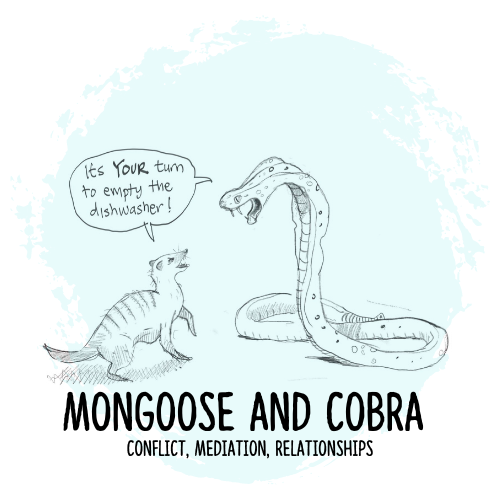Close to a decade of delivering conflict resolution workshops has taught me a great deal about how people view conflict. In fact, the lessons start before the workshop delivery itself. My phone rings or an email pings its way into my inbox and I find myself fielding an anxious, and in some cases desperate request for support:
“We need help!”
“They are out of control”
“We’re dealing with this all the time, it’s non-stop”
“We don’t know what to do”
These statements don’t always come on first contact, but they inevitably come. I feel empathy for their situation - by the time that an organisation approaches me for help with conflict, be it a school, residential setting, or workplace it’s likely been going on for some time, and likely embedded in the organisational culture. This leads to the individuals of this organisation, not just staff but all affected stakeholders, becoming overwhelmed, hopeless, frustrated and upset. Ongoing and persistent conflict can feel like passing the event horizon of a black hole, there’s no escape, you’re trapped and no-one can hear you scream!
When the situation has been thoroughly explained, stories of pupils fighting in the corridors, and co-workers who can’t be in the same room, we more often than not come to a request for “conflict de-escalation” skills to be taught to staff. Essentially they are saying “When stuff gets bad we need to know how to stop it!”. They are asking for words and actions that will resolve conflict at the most volatile moment. I call this ‘The Magic Wand Request' - “teach me the incantation to make everything better, oh wise one!”. This can then lead to an awkward conversation…the truth is, I don’t believe in magic, and I don’t put much stock in conflict de-escalation. Sure, common de-escalation techniques; Using “I” instead of “you”, maintaining appropriate eye contact, expressing empathy, and nodding when people speak can all be useful techniques when conversations become difficult and tensions run high. You may well be able to stop some act of violence being enacted, or regretful words being said, in which there is value. Yet, if we mistake conflict de-escalation for conflict resolution we are concocting a short-term fix. The conflict has been de-escalated, not resolved, and it will return, and ironically enough it will escalate!
I am sorry to say it but the boring, muggle way of dealing with conflict effectively is to:
1. Deal with it earlier in the process
2. Address or change the underlying issues that caused the conflict
In my reading, I found this quote that I think encompasses the above points well, despite it’s mention of workplace conflict I think it applies in other areas:
The resolution of workplace conflicts should take place as early as possible and should begin by asking whether the organization understands how conflicts arise, how they are resolved, and whether there is a need for change in the methods of dealing with conflict. (Gourlay & Soderquist, 1999)
Sustainable conflict resolution requires change. Not just between the parties in conflict but in the systems and cultures that helped create and sustain the conflict. This approach, unlike the conflict de-escalation request, requires no magic wand. It requires hard work and the willingness to examine processes, culture and the fact that the conflict may involve more people than the two kicking-off!
A conflict that is dealt with early doesn’t have the chance to anchor itself into the cultural domain, nor does it have time to become overblown and get to the point where it requires a referral to myself!
So, when these anxious people, at the end of their rope, phone me and ask for de-escalation techniques, do I simply tell them “ on yer bike!” and hang up the phone? Of course not. I am happy to teach de-escalation techniques but as part of a larger conversation about conflict. I tell them that as well as de-escalation techniques we will examine how conflict arises in the organisation, explore power dynamics in relevant relationships and, most importantly, I'd like the organisational change-makers to attend. In practice this means that the teacher is discussing conflict resolution with the students, the manager is exploring conflict resolution with their employees and the keywork staff are collaborating on culture change with their clients:
“We need help!”
What is happening and how does everyone feel about it? Does everyone feel the same about this?
“They are out of control”
What does control mean in your organisation? Who should have control?
“We’re dealing with this all the time, it’s non-stop”
What do we think it is about the organisation that makes conflict so common? How are you dealing with it?
“We don’t know what to do”
What have you tried, and why do you think it is or isn’t working?
This takes bravery. I really mean that. To look inward like that. To admit that conflict has become embedded in your organisation…but it’s the first step to change. And it is the change, not magic incantations or strategies or de-escalation techniques that will reduce conflict. It’s listening, understanding, confronting, and remaining open to change. That is where the magic lies.


Comments
Post a Comment